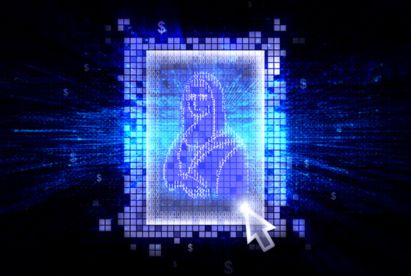NFTs Explained: How Non-Fungible Tokens Are Revolutionizing Digital Ownership
Introduction
In recent years, the world has witnessed a tremendous surge of interest in Non-Fungible Tokens (NFTs) and their transformative impact on digital ownership. From multimillion-dollar art sales to unique digital collectibles, NFTs have reshaped the way we perceive and trade digital assets. In this comprehensive guide, we will delve deep into the world of NFTs, exploring their definition, functionality, benefits, challenges, and future outlook.
Understanding Fungible vs. Non-Fungible Tokens
To comprehend the concept of NFTs, it is crucial to understand the distinction between fungible and non-fungible tokens. Fungible tokens, such as popular cryptocurrencies like Bitcoin or Ethereum, are interchangeable and hold equal value (each unit of the token is identical and can be exchanged on a one-to-one basis). Conversely, non-fungible tokens are one-of-a-kind and cannot be exchanged on a one-to-one basis. Each NFT possesses distinct characteristics, making it irreplaceable and unique.
How NFTs Work
NFTs are built on blockchain technology, with Ethereum being the leading blockchain for NFT creation and trading. The blockchain acts as a decentralized ledger, recording ownership and transaction history for each NFT. Artists and creators can tokenize their digital assets by minting NFTs and attaching metadata that defines its uniqueness, ownership, and other relevant information.
Benefits and Applications of NFTs
The rise of NFTs has unlocked numerous opportunities and applications across various industries. One of the primary benefits of NFTs is the ability to authenticate and prove ownership of digital assets. This revolution has transformed the art world, enabling artists to sell their digital creations directly to collectors. NFTs have also found applications in gaming, virtual worlds, and even tokenizing real-world assets like real estate or intellectual property.
Challenges and Considerations
While NFTs offer exciting possibilities, they also come with challenges and considerations. One major concern surrounding NFTs is their environmental impact, particularly due to the energy consumption of blockchain networks. Additionally, copyright and intellectual property issues have emerged, as NFTs can be created from existing digital content without proper authorization. Market volatility and speculation are also factors to consider when engaging with NFTs.
NFTs in the Mainstream
NFTs have gained significant attention in the mainstream media, driven by high-profile sales and endorsements. From digital artworks by renowned artists to iconic moments in sports, NFTs have captured the imagination of collectors and enthusiasts worldwide. Social media platforms and digital marketplaces have integrated NFT functionality, making it easier for creators and buyers to engage with NFTs.
Future Outlook for NFTs
The future of NFTs holds immense potential for further growth and innovation. As more industries and individuals recognize the value of digital ownership, NFT adoption is expected to skyrocket. However, regulatory frameworks and legal considerations will play a crucial role in shaping the future of NFTs. Technological advancements, such as scalability improvements and reduced environmental impact, will also contribute to the evolution of NFTs.
Conclusion
Non-Fungible Tokens have emerged as a groundbreaking technology, fundamentally transforming the way we perceive and trade digital assets. With their unique characteristics and blockchain-backed authenticity, NFTs have opened up new possibilities for artists, creators, and collectors. While challenges and considerations exist, the future of NFTs looks promising, with potential applications across various industries and a growing recognition of digital ownership. As the NFT ecosystem continues to evolve, staying informed and exploring the opportunities presented by this revolutionary technology is essential.
